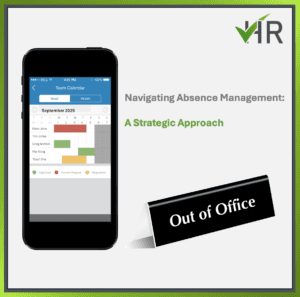Are You Tracking the True Cost of Employee Absences in Your Business?
In today’s competitive business world, maintaining organisational productivity and efficiency is key. Yet, one critical factor often flies under the radar: employee absence management.
While many businesses face substantial costs due to employee absences, surprisingly few implement structured monitoring systems to track these occurrences and understand their financial impact.
Understanding the Absence Management Framework
Absence management encompasses a strategic approach to monitoring employee attendance patterns with the goal of reducing time away from work, particularly due to health-related issues. This structured methodology is essential for maintaining productivity and ensuring smooth operational flow within your organisation.
Types of Absences
Unauthorised Absences: These occur when team members fail to provide notification about their inability to attend work, often resulting from unexpected circumstances.
Authorised Absences: These include planned time off such as annual leave, parental leave, and properly documented sick leave that follows your organisation’s absence policy. Many businesses categorise sickness absence separately for more accurate tracking.
The rise of remote working capabilities has created new flexibility in managing health-related absences, allowing employees to contribute productively even when unable to be physically present in the workplace.
Common Causes of Short-Term Absence
Short-term absences typically stem from:
- Minor illnesses including colds, flu, and headaches
- Musculoskeletal injuries
- Stress and mental health challenges
Identifying Root Causes
Effective absence management requires understanding the underlying factors contributing to employee time off. These typically fall into three categories:
Job-Related Factors: Elements such as job scope, workplace stress levels, and management approaches can significantly influence attendance patterns.
Personal Factors: Individual values, personality traits, and personal circumstances play important roles in absence behaviour. Considering these aspects helps employers develop more supportive and effective strategies.
Attendance Culture Factors: Policies like sick-pay schemes, reward systems, and workplace norms create the foundation for attendance expectations.
A comprehensive absence policy addressing all these elements provides the framework for effective management of employee attendance.
Managing Short-Term Absence
Short-term absences frequently result from minor health issues, but patterns of frequent short absences may indicate underlying job dissatisfaction or feelings of being overworked. Addressing these issues through targeted absence management strategies and supportive workplace practices can significantly reduce such occurrences.
The quality of the employment relationship, particularly its social dimensions plays a crucial role in influencing short-term absence patterns. By measuring and understanding these patterns, you gain valuable insights into employee perspectives and can work to improve workplace relationships.
Addressing Long-Term Absence
Long-term absence, defined as extended periods of continuous leave, typically results from:
- Mental health issues
- Musculoskeletal conditions
- Stress
- Acute medical conditions
Managing long-term absence requires a compassionate, flexible approach. Providing individualised support, implementing appropriate workplace adjustments, and ensuring supportive management significantly increases the likelihood of successful returns to work while preventing relapses or premature workforce exits.
The Path Forward
Recognising the importance of the employment relationship in absence management is vital. While it may not always trigger long-term absences, it remains a crucial factor when employees transition back to work.
Effective absence management supported by clear policies and thoughtful practices ensures smooth transitions back to work for all involved, encouraging a positive, productive work environment.
At Tick HR Solutions, we specialise in developing tailored absence management strategies that align with your organisation’s unique needs. Our approach emphasises transparency, integrity, and a personalised service to help you maintain productivity while supporting employee wellbeing.
Would you like to learn more about implementing effective absence management practices in your organisation?
Contact our team today for personalised guidance tailored to your business needs.

